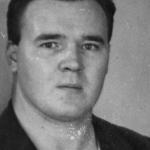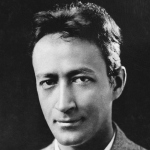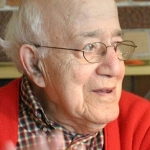Eugen Boissevain died in the autumn of 1949. I had wondered already, at the time of our visit, what would happen to Edna [Millay] if he should die first.
—Edmund Wilson
1
She cleaned house, and then lay down long
On the long stair.
On one of those cold white wings
That the strange fowl provide for us like one hillside of the sea,
That cautery of snow that blinds us,
Pitiless light,
One winter afternoon
Fair near the place where she sank down with one wing broken,
Three friends and I were caught
Stalk still in the light.
Five of the lights. Why should they care for our eyes?
Five deer stood there.
They looked back, a good minute.
They knew us, all right:
Four chemical accidents of horror pausing
Between one suicide or another
On the passing wing
Of an angel that cared no more for our biology, our pity, and our pain
Than we care.
Why should any mere multitude of the angels care
To lay one blind white plume down
On this outermost limit of something that is probably no more
Than an aphid,
An aphid which is one of the angels whose wings toss the black pears
Of tears down on the secret shores
Of the seas in the corner
Of a poet’s closed eye.
Why should five deer
Gaze back at us?
They gazed back at us.
Afraid, and yet they stood there,
More alive than we four, in their terror,
In their good time.
We had a dog.
We could have got other dogs.
Two or three dogs could have taken turns running and dragging down
Those fleet lights, whose tails must look as mysterious as the
Stars in Los Angeles.
We are men.
It doesn’t even satisfy us
To kill one another.
We are a smear of obscenity
On the lake whose only peace
Is a hole where the moon
Abandoned us, that poor
girl who can’t leave us alone.
If I were the moon I would shrink into a sand grain
In the corner of the poet’s eye,
While there’s still room.
We are men.
We are capable of anything.
We could have killed every one of those deer.
The very moon of lovers tore herself with the agony of a wounded tigress
Out of our side.
We can kill anything.
We can kill our own bodies.
Those deer on the hillside have no idea what in hell
We are except murderers.
They know that much, and don’t think
They don’t.
Man’s heart is the rotten yolk of a blacksnake egg
Corroding, as it is just born, in a pile of dead
Horse dung.
I have no use for the human creature.
He subtly extracts pain awake in his own kind.
I am born one, out of an accidental hump of chemistry.
I have no use.
2
But
We didn’t set dogs on the deer,
Even though we know,
As well as you know,
We could have got away with it,
Because
Who cares?
3
Boissevain, who was he?
Was he human? I doubt it,
From what I know
Of men.
Who was he,
Hobbling with his dry eyes
Along in the rain?
I think he must have fallen down like the plumes of new snow,
I think he must have fallen into the grass, I think he
Must surely have grown around
Her wings, gathering and being gathered,
Leaf, string, anything she could use
To build her still home of songs
Within sound of water.
4
By god, come to that, I would have married her too,
If I’d got the chance, and she’d let me.
Think of that. Being alive with a girl
Who could turn into a laurel tree
Whenever she felt like it.
Think of that.
5
Outside my window just now
I can hear a small waterfall rippling antiphonally down over
The stones of my poem.




















Comment form: